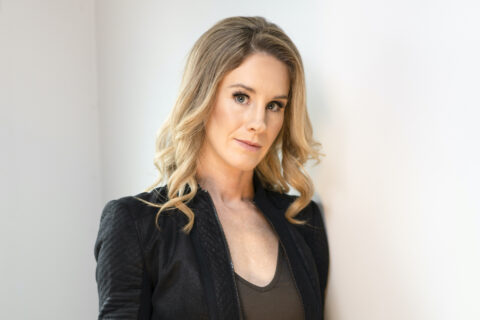A passion for your profession is critical to building a successful career –– especially in enterprise-level software sales and consulting in a hyper-growth market. However, just as passion alone does not sustain a marriage, passion alone will not keep your career afloat.
Feeling a spark for sales might land you the job or get you the meeting, but a solid commitment to the grind – what we call “velocity and grit” – is what will help your career grow sustainably.
The Gist of Grit
If there is one word that describes the skills necessary for sales success, it is grit. Grit is defined as “a firmness of mind or spirit: unyielding courage in the face of hardship or danger.”
More to the point, a 2013 Forbes article defined grit as:
- Courage
- Conscientiousness (achievement-oriented versus dependable)
- Long-term goals and endurance (follow through)
- Resilience: optimism, confidence, and creativity
- Excellence versus perfection
If you have these attributes, you are well along the way to a successful sales career.
The Value of Velocity
Sustainable sales success requires steady action, work, and unending dedication to the process. The relationships that make up the very fiber of your success do not sprout, grow, and thrive in any condition. They require thoughtful and consistent care and attention. Because of this, only the most dedicated and nurturing salespeople will grow the sturdiest and most fruitful relationships over time. How do you do that?
- Don’t neglect your relationships. Keep in touch with prospects, colleagues, past colleagues, and customers.
- Be consistent. Always execute what you say you will; this builds trust.
- Don’t be complacent. Keep evolving by continually seeking out new knowledge through podcasts, books, conversations with mentors, conferences, etc.
Paradoxically, velocity and grit do not necessarily require working more or working harder—they require working smarter and more methodically. Those who are willing to invest time and energy into their sales process have the opportunity to actualize the most fulfilling and prolific sales careers to have ever existed.
Develop Your Process

Board Member/Senior Operating Advisor | Courtesy Photo
World-class salespeople stand apart from “get-by” salespeople because they have a tried and tested process that they work and rework to achieve optimal results. There are countless sales books promising to make your sales results soar, but basically, most sales methodologies are the same. When it comes down to it, it is not the methodologies that drive success. Rather, it is good leadership, a consistent process, and the intuition of hardworking human beings.
In our experience, the most critical part of the sales process is the discovery process. As sales author, Elmer Wheeler said, “Your first ten words are more important than your next ten thousand.” Many sales are won and lost during the discovery stage. If you can’t understand your customer’s issues and pain points and match what you have to offer to their needs, you will not be able to differentiate your product and service in a meaningful way.
What are the key elements of an effective sales process?
- Always be prepared. Don’t show up to a sales meeting without knowing your purpose and desired next step.
- Don’t rely on a playbook with “tactics.” Focus on what drives your sales process forward and commit to showing up every day to push the process forward.
- Focus on discovery. If you prioritize one part of your process, make it the discovery process. Most sales are won or lost in the discovery phase.
Prime Your Pipeline

Operating Partner at Stripes | Courtesy Photo
The importance of pipeline development cannot be overstated. Nothing happens unless you’re filling your funnel. When it comes to pipeline building, focus on quality over quantity. When you have a healthy pipeline, you can confidently disqualify opportunities that are not good fits early on in the game. A full pipeline is worthless if it isn’t filled with quality opportunities.
A dedicated person who is willing to define and hold themselves accountable to a process, and change portions of the process that aren’t working, will have a healthy pipeline. Success is driven by your work ethic and creativity, not checking off boxes in a sales manual.
Ask yourself:
- Do you have a process you follow to pursue outbound leads?
- Where do you find your best prospects?
- When you find them, how do you engage them?
- When you’re engaging with them, do you define a purpose for your conversation and a planned next step?
- Do you have a solid set of discovery questions you ask your prospects?
- Once you are sure you can help your prospects, do you know how you will follow up?
To keep your pipeline primed:
- Build your process for pursuing outbound leads around your past successes. Pursue the channels you used to find your current best customers.
- Have a solid set of discovery questions that help you identify how your solution can help your prospect. Always, always, always have a purpose for your conversations and a planned next step at the end of a conversation.
Prepare, Prepare, and Prepare Some More
You have one shot to make a first impression with a prospect and you never know what piece of information or insider knowledge will help set you apart. Performing research ahead of time, preparing an agenda, and coming to the table with thoughtful questions are key.
When preparing for a call, ensure you know a little bit about your contact’s background. Try to find answers to these questions:
- Where do they come from?
- What are they more driven by: logic or emotion?
- How might purchasing your solution affect their job and/or their team?
Knowing the answers to these questions will help you adjust your approach to your customers’ personalities and tailor your message to their motivations.
Be smart. The last thing you want to do is ask a question you could answer with basic research. There are many sources of information available to you – Google, LinkedIn, public annual reports, Crunchbase, and chatting with your contact’s administrative assistant.
Ideally, when you walk into a meeting, you will have an idea of where your conversation will go. But be flexible enough to listen intently and pivot when you uncover a different need.
In addition to doing your research, an important part of preparation is knowing your intention. Make sure you know the goal of your meeting. Maybe it’s to find out the name of the decision maker, to get the next meeting on the calendar, or to have the prospect ask for a proposal or quote. Whatever it is, most of your sales calls won’t include closing the sale during the call. Get comfortable setting different goals that support the buyer’s journey along the way.
Be Ready for Tomorrow and Beyond
Part of the velocity and grit that it takes to succeed in sales— especially in the hyper growth sales world of tomorrow—includes getting comfortable with an endlessly accelerating pace of change. We must learn through our own research and through living the highs and lows of the sales lifestyle every day. The agony of defeat and the thrill of a win are both excellent teachers. Success requires learning from wins and losses. In other words, to succeed you must evolve.
“Success requires learning from wins and losses. In other words, to succeed you must evolve.”
Most thriving salespeople have a regular practice of seeking out new knowledge on the latest insights in the profession. This may be by listening to audio recordings, reading a book, or attending workshops and motivational seminars. At a base level, successful salespeople intuitively know that they need to constantly grow to become more adept at building lasting relationships and keep up with the way modern customers buy.
Be the Best Salesperson You Can Possibly Be
Once you have done your research and set your intention, there is one last important step – getting your mind right. It is important that you are in a good headspace to make your call. Take a deep breath. Imagine yourself in a calm and positive state.
This approach from Brian Tracy, author of The Psychology of Selling: Increase Your Sales Faster than You Ever Thought Possible, can help you set the tone.
“Stop for a few seconds and create a clear mental picture of yourself as completely relaxed, calm, positive, smiling, and in complete control of the interview. Then inhale deeply, filling up your lungs and putting pressure on your diaphragm. Hold this breath for a count of seven and exhale for a count of seven. While you are breathing deeply, continue to hold a picture of yourself as the very best salesperson you could possibly be.”
Mark Petruzzi has worked in the enterprise and cloud software ecosystem for 25 years. He has held senior leadership positions at Oracle, UKG (Ultimate Software), HCL, Accenture, and Deloitte where he was instrumental in building both the Oracle and Ariba practices into the largest “Big Four” practice in their respective markets. He has worked as a serial entrepreneur, founding, growing, and successfully exiting boutique consulting firms in the Salesforce, Oracle, and Peoplesoft ecosystems. More recently, Mark has turned his focus toward developing and executing innovative sales transformation as an expert board and leadership advisor for Genpact, BCI, 4L Data Intelligence, and a top-five global strategy consultancy.
Paul Melchiorre has 30 years of experience in enterprise software sales and business leadership. As Senior Vice President of Global accounts at SAP, he and his group were responsible for over 85% of the company’s revenue and helped establish SAP as the global STC Interior leader in enterprise software. Recently, he served as President and Chief Revenue Officer at Anaplan, a leading SaaS platform to facilitate financial planning and management. Paul is now sharing his proven, innovative approach as Operating Partner at Stripes and serves on multiple company boards.
Petruzzi and Melchiorre are co-authors of Selling the Cloud: A Playbook for Success in Cloud Software and Enterprise Sales. Learn more at linkedin.com/company/selling-the-cloud/.
© YFS Magazine. All Rights Reserved. Copying prohibited. All material is protected by U.S. and international copyright laws. Unauthorized reproduction or distribution of this material is prohibited. Sharing of this material under Attribution-NonCommercial-NoDerivatives 4.0 International terms, listed here, is permitted.














